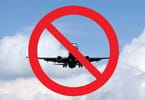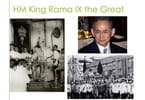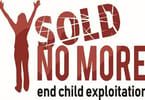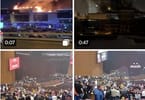Just a day before the incident, a local tweet alleged police brutality in the Likoni Ferry area adding this photo. eTurboNews cannot confirm when this photo was taken.
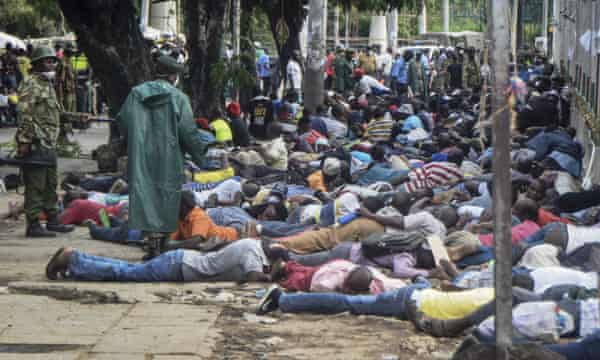
From Kenya to South Africa, the UK, Hong Kong, Russia to the United States and beyond, the added pressures of COVID-19 have pushed community-police relations to the breaking point as police have found themselves thrust to the frontlines of the coronavirus response.
This issue has been particularly acute in Kenya, where police were tasked with new responsibilities without proper equipment or information. The resulting confusion has been a catalyst for increased tensions between the police and everyday Kenyans — including reports of violent and heavy-handed crackdowns from police.
One police officer explained that he has been trained to deal with volatile situations and fight terrorism — but nothing has prepared him for the “invisible threat” of the pandemic. “It was so horrible, so, so frightening,” said the officer. “When you wake up in the morning every day and you go to work and you’re not sure if you can come home in the evening without you being infected.”
The fear that police officers have about the virus is exacerbated by a lack of information.
In an article by the United States Institute for Peace, the author, Rebecca Ebenezer-Abiola, لکيو:
Apart from not having enough information on COVID-19, the respondents also reported not having clear operational directives from their superiors. Without effective management directives, individual officers have been placed in difficult positions where enforcing the law could create counter-productive outcomes and place people at more risk of contracting COVID. One officer described a dilemma he faced while managing people who were arrested for breaking COVID-19 rules: “I encountered [a situation where] we had to arrest some persons … we had to place them in the same cell without maybe knowing … if they are COVID positive or negative.”
Many of the police officers interviewed also reported that they lacked personal protective equipment (PPE). According to one officer, they were provided with one facemask each when the pandemic started. Another officer explained that some police units have had to depend on “well-wishers,” that is, members of the public and private organizations, to provide them much-needed PPE. He admitted that this practice has a direct link to corruption: accepting such gifts from the public compromises the police and places them in a difficult situation to enforce laws if a well-wisher is found committing a crime.
Along with the risk of corruption, the pandemic has seen a wave of reports of police heavy-handedness — and in some cases outright violence against civilians — in enforcing COVID-19 regulations in Kenya. Yvonne Akoth, a human rights activist in Nairobi, said that implementation of the previous lockdown was rife with “gross human rights violations” that led to an outcry from the citizens of Kenya and harmed efforts to combat COVID. “Police brutality isn’t just unlawful; it is also counterproductive in fighting the spread of the virus,” said Otsieno Namwaya, senior Africa researcher at Human Rights Watch.
This influx of police brutality reports also represents a setback in efforts to repair the relationship between the police and communities. Prior to the outbreak of COVID-19, the government of Kenya had tried to increase community engagement to improve the image of the police and to build a mutually-beneficial relationship with the public. The police provided communities with water, organized sporting activities with the youths of the communities, and held regular meetings with community elders to discuss security concerns. In return, the community members have worked with them to address security issues.
Since the pandemic started, however, the restricted movement has significantly impacted this dynamic as both police and citizens have been unable to carry out tasks that helped sustain the relationship. While some police officers claimed that the alleged harassment and brutality has been exaggerated and over-reported by the media, many officers interviewed admitted and acknowledged the existence of police brutality and the harm it has caused in the community’s faith and trust in the police. “When we started enforcing the measures as given by the presidential directives, it started on a bad note … Citizens were harassed by some police officers, some took advantage of the situation to be brutal,” said one officer.
Poaching is another issue authorities in Kenya and elsewhere in Africa have a hard time dealing with along with fighting the virus, community violence, and instability.
هن آرٽيڪل مان ڇا وٺو:
- While some police officers claimed that the alleged harassment and brutality has been exaggerated and over-reported by the media, many officers interviewed admitted and acknowledged the existence of police brutality and the harm it has caused in the community's faith and trust in the police.
- Prior to the outbreak of COVID-19, the government of Kenya had tried to increase community engagement to improve the image of the police and to build a mutually-beneficial relationship with the public.
- From Kenya to South Africa, the UK, Hong Kong, Russia to the United States and beyond, the added pressures of COVID-19 have pushed community-police relations to the breaking point as police have found themselves thrust to the frontlines of the coronavirus response.











